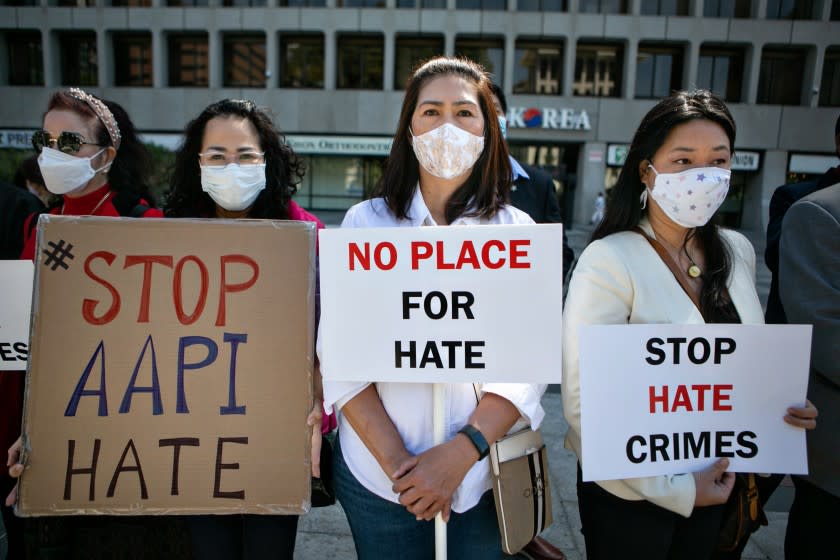Letters to the Editor: Maybe a little youthful naiveté can help us be braver bystanders

To the editor: The anti-Asian assault in New York last week started me thinking of the fall of 1968, when I came upon police in Lansing, Mich., trying to forcibly arrest a Black man late one night near the state Capitol. ("Why do bystanders fail to intervene when they see others in pain?" Opinion, April 4)
My future wife, her roommate and her boyfriend were with me. I stopped the car and the four of us descended on the police officers. We told them to back off and to put the man gently into the back seat of the patrol car. We then went to the police station to make sure the suspect was treated fairly.
We remained until he was released. We then drove back to the Michigan State University campus, where we were students. We all became friends with this man who was a jazz musician and educator who passed away recently, still thanking me for intervening that night.
We were young, naive Black student activists unafraid of the possible consequences. Perhaps a variant of this naive lack of fear can motivate bystanders to help others in pain.
Philip S. Hart, Los Feliz
..
To the editor: I haven't been able to stop thinking about another incident that I saw in the news not so long ago.
In February 2019, Chicago police officers rammed in the door of Anjanette Young, a social worker who had just gotten home from her shift and was getting ready for bed. They kept her unclothed for 40 minutes until they realized they had made a mistake.
How is it possible that one group of human beings can treat another with such inhumanity or fail to come to their aid? Apparently, social scientists have isolated one key ingredient as shared identity or lack thereof.
It is beyond time to eliminate systems and organizations that support dehumanization by reinforcing otherness in the ways that American law enforcement has demonstrated.
Brenda Wiewel, Los Alamitos
This story originally appeared in Los Angeles Times.

